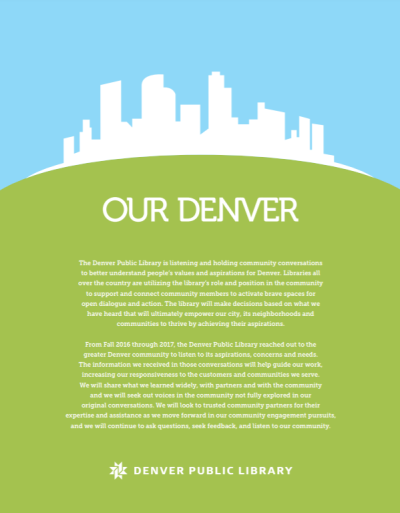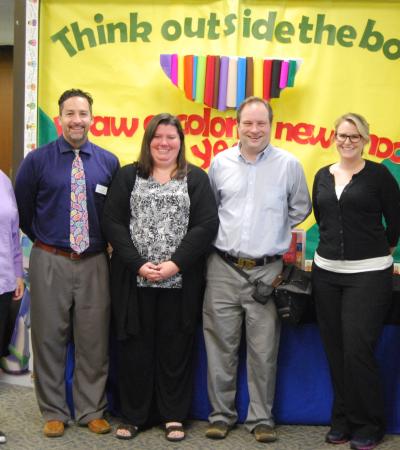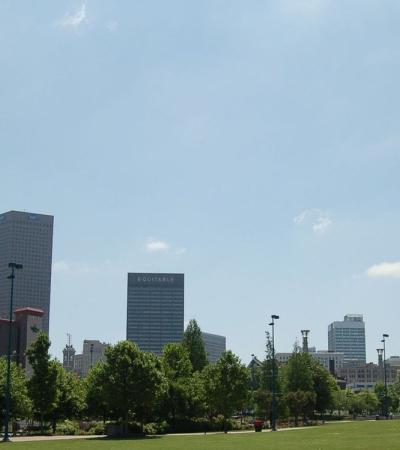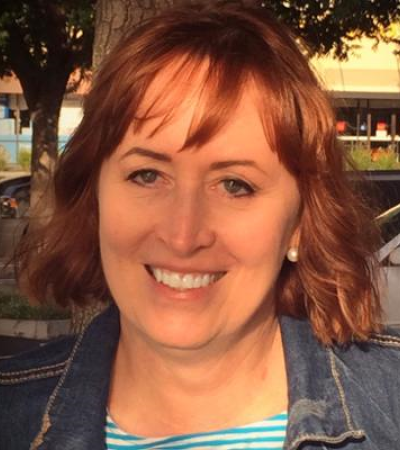Denver Public Library has undertaken wide-ranging community engagement efforts, reaching out to the greater Denver community to discover its aspirations, concerns and needs. The library uses this information to guide its strategic work and to be responsive to the needs of its communities and customers.
Here, Erika R. Martinez, the library's director of communications and community engagement, shares how Denver Public learned about, and worked to overcome, their customers' feelings of disconnect in a fast-changing city.
**Register here for the ALA/Harwood Institute 2019 Public Innovators Lab for Libraries.**
Erika Martinez: A couple years ago, we started to ask ourselves, "How can we better serve our community? How can we really understand their needs?" Our staff completed a training with the Harwood Institute, and we found their model really suits what we're trying to do: step outside our walls and be part of the community.
We sent several folks to the training who were at all different levels of the library, which is key. This can’t be a top-to-bottom or bottom-to-top operation. It really must be something that the entire organization sees as valuable.

PL: What does the Harwood Institute's approach entail?
It's all about talking to people, gathering information, then assessing and sharing what you heard.
Their model asks the question, “what are your aspirations for your community?” When we hold Community Conversations, never once do we say, “What can a library do to help you?” Instead, we say, “What are your aspirations for your neighborhood? What kind of neighborhood do you want to live in?” When you ask people those questions, you begin to understand what they want, what they need and what their frustrations are.
The challenging part about asking these questions is that you’re going to learn a lot of things from the community that, as a library system, you can’t solve on your own. You have to ask yourself, "what does this mean for a library? What is our role?"
PL: In practice, what does this look like?
Part of the training philosophy is to get out there and get your feet wet, so Denver Public started conducting Community Conversations soon after the training. We hosted just under 30 conversations in our first year, 2017. Then we looked at all the different conversations that we hosted and gathered the top ideas and concerns that had emerged.
The last piece of the process is to share the information we learn from the community. With the information we gathered, we created a public document, “Our Denver.” We reached out to partner agencies and shared with them what we learned. We have been able to deliver messages to city councilpersons and even the mayor: “We wanted to let you know that in our conversation we heard X, Y and Z.”
PL: And what did you hear in those conversations?
One of the challenges that we heard is related to Denver's recent growth spurt. Some people feel really disconnected. A lot of people are moving to Denver, and it really is changing the fabric of our city. People no longer have neighbors that have been there for 30 years; they now have neighbors who just moved here from another city or another part of town. People talked about a lack of connection.
PL: As a library, what do you do with that information?
There's a lot a library can do to help people feel more connected. The city of Denver has an annual two-week event called Denver Days. Denver Days was created so neighbors can come together and get to know each other through various activities, such as service projects and block parties. We asked our library branches if they were interested in hosting events, and last year, we had 27 different events related to Denver Days.
One of our branches, which is located in a gentrifying neighborhood, hosted a conversation that brought together experts to talk about the history of gentrification. For some patrons, it was the first time they realized that they were part of the gentrification happening in their community. Even though it was a tough conversation, people felt they had a place to go to talk about it.
For us, it’s our responsibility as listeners to connect the dots. The library is such a phenomenal organization in any city or town because it is such a trusted institution. The community believes in and trusts us enough to have these conversations with us, and we work hard to make sure that people are being heard.



